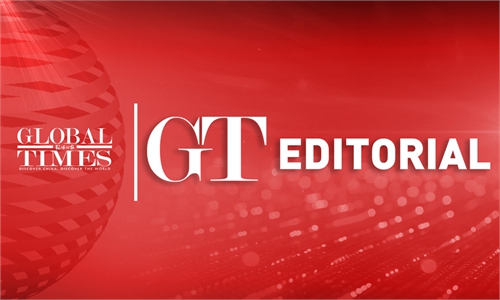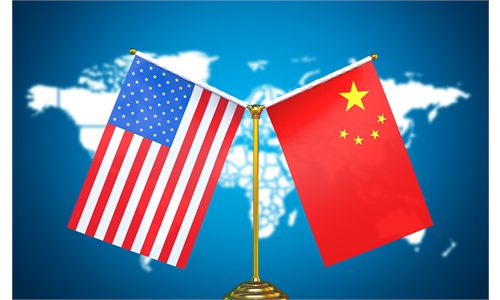China most stunning
Share This
Friday, November 29, 2024
The Second China International Supply Chain Expo Opens in Beijing, Those who claim China is waging ‘supply chain warfare’ have got wrong playbook
Foreign officials, guests and exhibitors expect to strengthen global supply chains at 2nd CISCE
A recent article in The New York Times accused China of waging so-called supply chain warfare by sanctioning the American drone company Skydio. The article also mentioned a Global Times editorial titled "US company sanctioned by China 'cries out in pain,' tearing off American façade," but it failed to acknowledge that Skydio was sanctioned by China due to its involvement in US arms sales to Taiwan island. Inventing new terms to exert the discourse hegemony and label other countries, including China, is a typical tactic employed by some US media and think tanks.
Currently, the second China International Supply Chain Expo (CISCE) is being held in Beijing, attracting over 620 companies, institutions, and international organizations, a 20 percent increase from the inaugural expo. One notable feature of this year's expo is the joint exhibition booths set up by Chinese and foreign companies.
For example, Apple and its Chinese suppliers are exhibiting together; German company Bosch, Chinese electric vehicle maker Xpeng, global mining and materials company Rio Tinto, and China Baowu Steel Group are showcasing their collaboration in an industrial chain partnership; and New Zealand dairy giant Fonterra is displaying its green agriculture supply chain alongside Chinese partners. Clearly, these companies want cooperation. None of them would agree with The New York Times' claim that China is waging "supply chain warfare."
The supply chain emerged alongside global industrial division and cooperation, serving as a "win-win chain" that benefits all countries. The successful hosting of the CISCE is a strong testament to this. Tim Cook, the CEO of Apple, who appeared at this year's CISCE, praised the event, saying "I think it's a very great expo, a tour de force of innovation."
In fact, since the 1990s, economic globalization has developed rapidly, significantly reducing the costs of multinational collaboration. Many companies have enhanced the quantity and quality of supply chains through the global division of labor, outsourcing, and cooperation, maximizing the comparative advantages of various countries while also increasing employment and enhancing people's well-being.
However, a few countries, such as the US, have initiated "supply chain warfare," transforming the "win-win chain" into a "blockade chain" and a "confrontation chain." This has caused disruptions and damage to the originally smooth-running global supply chain. These countries narrowly view trade deficits as "losses," forcibly swaying public opinion, and attempting to reverse so-called "unfair trade" through imposing additional tariffs. The ultimate result is that domestic consumers pay higher price.
A few countries feel uneasy and anxious about China's rising status in the global supply chain, which has led them to strengthen control over key technologies, critical resources, and essential links. They artificially politicize and weaponize the supply chain, promoting "decoupling," building "small yard, high fences," and abandoning international cooperation based on the resource endowments and comparative advantages of various countries. They enforce the "de-sinicization" of multinational companies' supply chains and reduce their own dependence on Chinese products. As a result, the institutional costs of supply chain cooperation are continuously increasing, undermining the original advantages of high efficiency and low costs, while adding more and more uncertainty and instability.
The reason the supply chain is referred to as a "win-win chain" lies in the fact that it is not merely a simple accumulation of independent links, but rather a complex system that is tightly interconnected and interdependent, formed over a long period of time through the collaboration of various countries, enterprises, talents, technologies, and regulations. Just as the skeletal and nervous systems of the human body are the cornerstones of sustaining life, every link and component of the supply chain is an organic part of the normal functioning of the global economy. Once this organic structure is damaged, it is akin to a broken bone or dislocated joint in the human body, and the difficulty of repair far exceeds the superficial loss. When the global supply chain experiences "dislocation" due to political interference, many long-accumulated structural advantages cease to exist. Although the supply of certain products or resources can be restructured, the deep cooperative relationships formed historically are difficult to repair. Furthermore, the rupture of a single link can trigger a chain reaction, leading to the accumulation of systemic risks in the global economy.
The supply chain belongs to the world, not to any single company or country, and it should not be used as a weapon. In the era of economic globalization, only by adhering to open cooperation in global industrial and supply chains can we achieve win-win development. China is committed to promoting the establishment of an open world economic system and maintaining the stability and smooth operation of global industrial and supply chains. It is not only a participant and beneficiary of the global industrial and supply chain cooperation but also a steadfast defender and builder of economic globalization. Those who claim that China is waging "supply chain warfare" have got the wrong playbook.
In the current situation, the common interests of China and the US have not diminished; rather, they have ...
EP-3E is a small aircraft, it carries significant lessons and should serve as a warning sign to the ...
Chinese President Xi Jinping met with US National Security Advisor Jake Sullivan at the Great Hall of the ...
Thursday, November 28, 2024
Mara bought overpriced properties - PAC
Mara Inc overpaid for London & Melbourne properties - PAC, Purchases also not approved by Finance Ministry.
KUALA LUMPUR: Overseas properties purchased by Mara Inc in 2013 and 2014 were overvalued, says the Public Accounts Committee (PAC).
PAC chairman Datuk Mas Ermieyati Samsudin said the purchases involved the Dudley International House, 51 Queen Street and 333 Exhibition Street in Melbourne, Australia, as well as Beaumont House in London.
“The purchases were not approved by the Finance Ministry.
“However, the Rural and Regional Development Ministry (KKDW) appealed the matter later, with it being brought before the Economic Council, which approved the purchases in 2013,” she said in a statement yesterday.
Mas Ermieyati said the matter is currently being investigated by the Malaysian Anti-Corruption Commission and also undergoing a court process.
“PAC recommends that KKDW, Majlis Amanah Rakyat (Mara), Mara Corporation Sdn Bhd (Mara Corp) and Mara Inc ensure that proposed investments both domestic and international – including high-value procurements like properties – comply with the latest government policies.
“Domestic investments should also be prioritised,” she said.
She said the recommendations were proposed following proceedings held on July 30, July 31 and Sept 19 this year.
According to the PAC report, Mara sold four properties between 2016 and 2018.
Three properties, namely 333 Exhibition Street in Australia, Ashley Hotel and Atelier Serviced Apartments in Britain were all sold for a profit.
However, the 51 Queen Street property, which has been flagged by PAC, was bought in May 2014 for RM70.43mil but was sold at a loss of RM5.30mil.
Dudley International House, meanwhile, generated a return of 38.7% between 2013 and 2023.
It was reported previously that the price of Dudley International House was deliberately inflated by A$4.75mil.
Then MARA Inc chairman Datuk Mohammad Lan Allani was charged with 22 counts of corruption amounting to RM20.45mil over the property deals in Melbourne. He pleaded not guilty to the charges.
Among the witnesses who presented their statements were deputy auditor-general (corporations) Roslan Abu Bakar; KKDW secretary-general Datuk Muhd Khair Razman Mohamed Annuar; Mara director-general Datuk Seri Azhar Abdul Manaf; Mara Corp Group Corporate Planning director Datuk Amir Azhar Ibrahim; and Mara Inc chief executive officer Mohd Fadzil Mohd Idris.
Separately, Mas Ermieyati said Mara Inc’s appeal to convert Premiera Hotel’s existing debt into equity for a second time should not be repeated. The first request was made in 2015.
“KKDW, Mara, Mara Corp, and Mara Inc should make sure that Premiera Hotel has a clear plan to ensure the debt-to-equity conversion generates returns for the company’s sustainability,” she said.
In the report, the PAC also proposed for KKDW, Mara and Mara Inc to see to it that all development projects – including property development, renewable energy projects and marketing plans – are completed on time and within budget, to generate high profits.The report said Mara Corp must also strictly monitor its subsidiaries to guarantee profits, repay debts and pay dividends.
Besides that, a comprehensive standard operating procedure must be established for property rental to prevent arrears.
“Mara Inc must also draft a complete and clear policy on property valuation,” said Mas Ermieyati.








